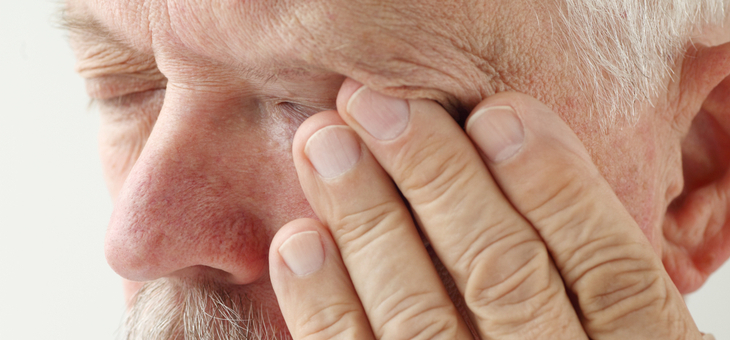Dry eyes are a natural side-effect of ageing, but can also be a byproduct of various medicines, such as rheumatoid arthritis, collagen vascular diseases, Sjogren’s syndrome or physical defects that make closing the eyelids difficult or impossible. Symptoms aren’t just irritating – if left untreated they may harm your sight.
Our tears are made from water, mucus and oil and help to keep the eyes moist and healthy. A lack of tears is a major contributor to dry eyes, so the more tears the better. If you aren’t able to cry over sad movies all day, don’t worry, you can choose from a variety of brands of ‘artificial tears’. WebMD recommends using preservative-free artificial tears if you plan to use them regularly, as preservatives may further irritate the eyes.
If artificial tears aren’t enough to prevent dry eyes, there are other products that can assist with symptoms and inflammation. Consult with your doctor for the best way to improve the condition.
Make sure you’re eating enough omega-3 fatty acids, as these help your body to produce the oily part of your tears. Wearing sunscreen and limiting your screen time can also help to prevent dry eyes.
Should the oil in the glands at the sides of your eyes cool down and solidify, it can dry your eyes and prevent the release of tears.
To counteract this, WebMD recommends holding a warm face towel to your closed eyes once or twice a day for between 30 seconds and four minutes. Gently massaging your eyes can also help to clear built-up oil. Rub your index fingers over your closed eyes in a circular motion, then run a cotton swab over your eyelids towards the lash line to help clear out your eyes.
Small plugs can also be put into your eye ducts so that tears stay on the surface of your eyes longer rather than draining into your sinuses. If symptoms are severe, surgery is available to close these ducts permanently.
Do you suffer from dry eyes? What do you do to ease the symptoms? Let us know in the comment section below.
Related articles:
What are eye floaters
Keep an eye out for cataracts
How to keep your eyes young
Disclaimer: This article contains general information about health issues and is not advice. For health advice, consult your medical practitioner.

